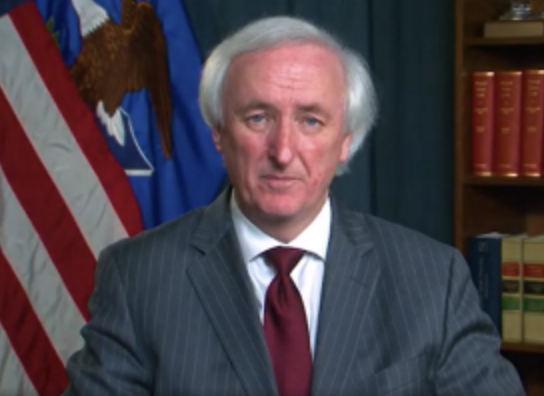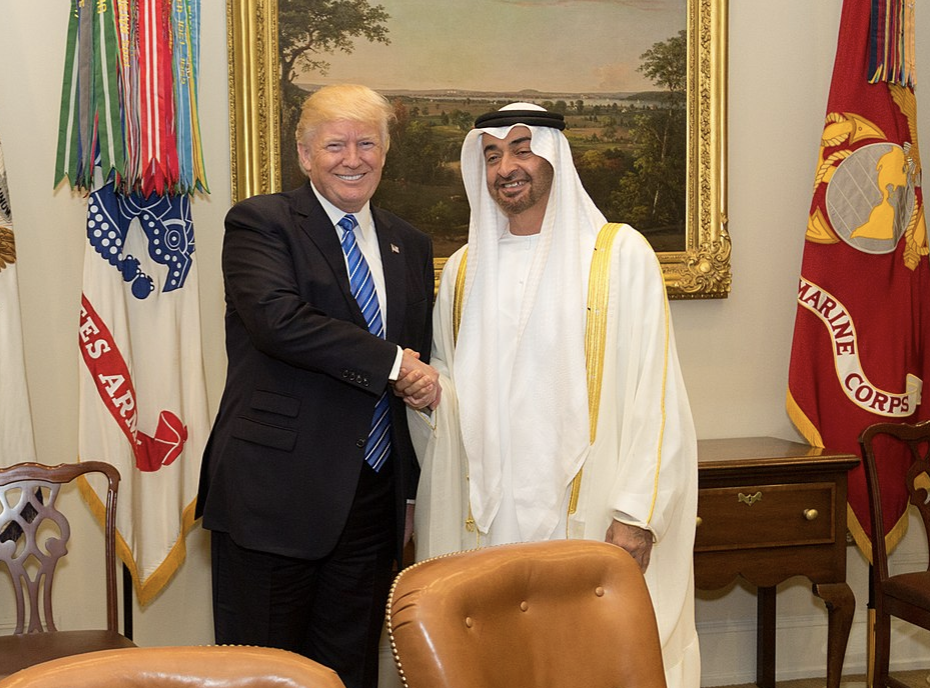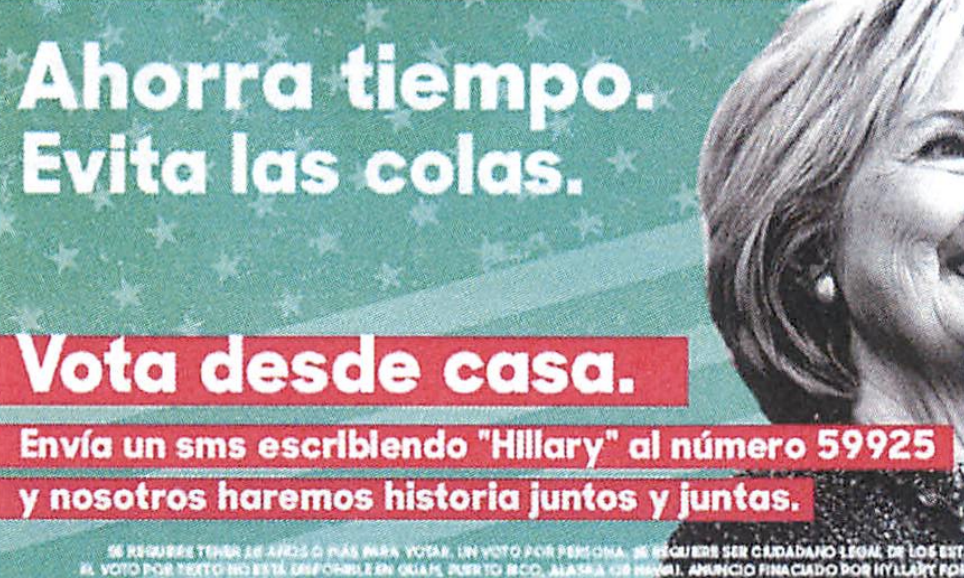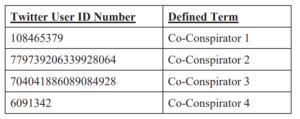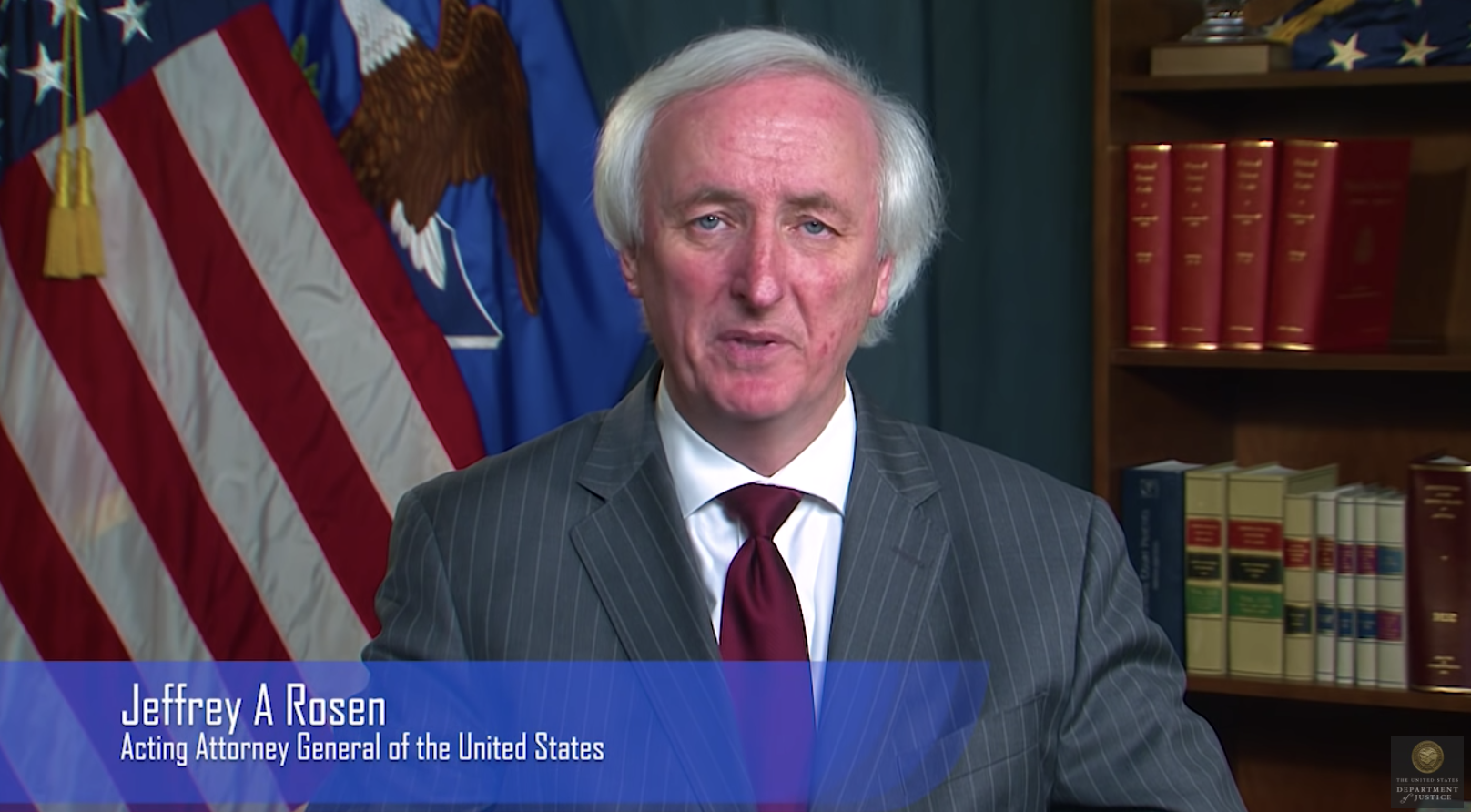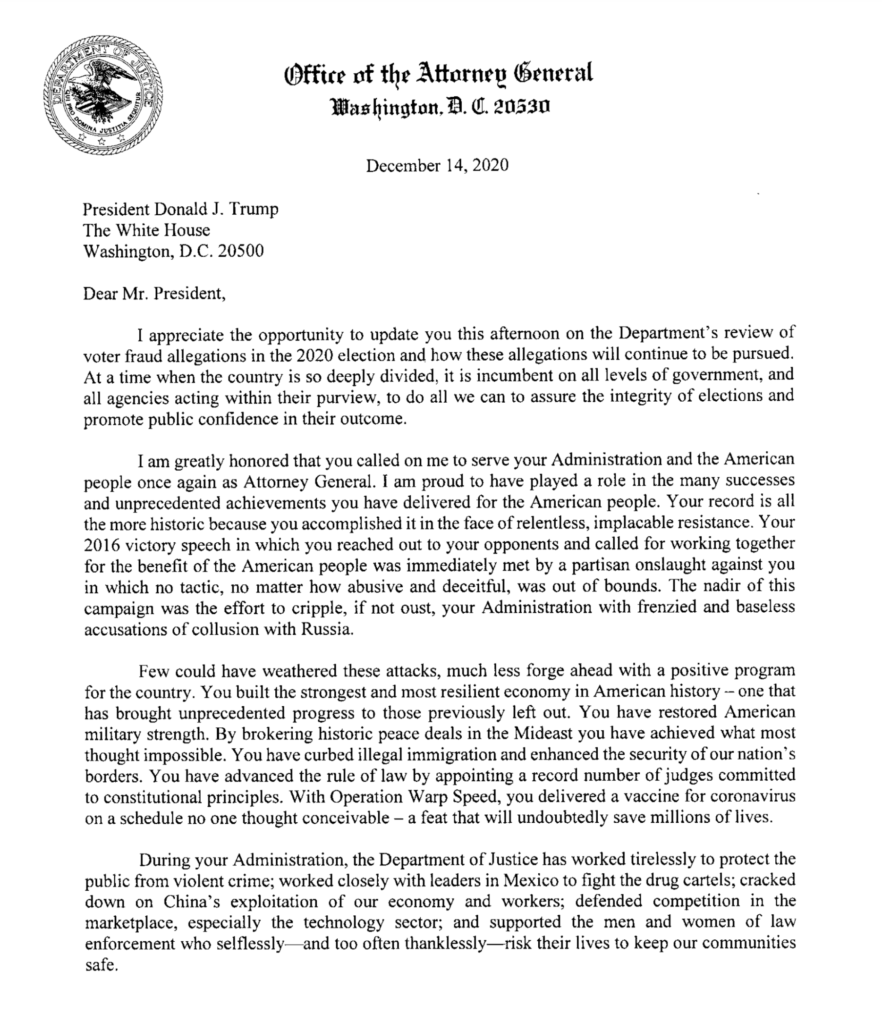Bill Barr’s Legal Exposure May Lead Him to Lie about the Hunter Biden Laptop
In case you missed it on Twitter, I am currently reading the former Attorney General’s fictional autobiography, which is predictably awful. I’ll write it up at more length in the days ahead.
The most newsworthy detail — by far! — in the parts I’ve read thus far is this admission describing how he “had” to open the Durham investigation, not because there was a suspected crime, but because Barr believes Trump’s “adversaries” pushed it to hobble his Administration.
I saw the way the President’s adversaries had enmeshed the Department of Justice in this phony scandal and were using it to hobble his administration. Once in office, it occupied much of my time for the first six months of my tenure. It was at the heart of my most controversial decisions. Even after dealing with the Mueller report, I still had to launch US Attorney John Durham’s investigation into the genesis of this bogus scandal.
[snip]
I always suspected that the preelection peddling of Steele’s dossier and other similar collusion claims comprised an attempt to carry out a classic campaign dirty trick: first, develop scurrilous allegations about one’s opponent, then get them into the hands of an investigative authority, and, finally, leak the “fact” that the allegations are being investigated. This way, unverified allegations are publicized and given instant credibility on the theory that authorities thought them worthy enough to investigate. News organizations can justify publishing dubious allegations by claiming they are really just reporting the facts of a pending investigation. Before Election Day, the Clinton campaign had a good motive for instigating the collusion narrative: besides hurting Trump, it diverted attention from her own e-mail server scandal, which seemingly came to a head in early July when FBI director Comey held a news conference sharply criticizing Clinton for her mishandling of classified e-mails. [my emphasis]
Over and over, Billy situates in advance — sometimes even before he returned to government — his belief in conspiracy theories that John Durham is currently chasing. The book goes a long way to substantiating that Durham is and always was using a criminal investigation to tell a story developed before either Barr or Durham had looked at any evidence.
This entire three year investigation was started because Billy Barr wanted to get revenge, not because he wanted to investigate a crime.
That’s important background for a recent appearance Barr made to claim that the decision by social media companies not to allow the NY Post story on an unverified laptop go viral swung the election.
So when former staffer Larry Kudlow on Thursday interviewed former attorney general William P. Barr for his Fox Business show, the conversation operated from shared assumptions about Trump’s successes and the toxicity of the political left. The result was that Barr outlined a remarkable hierarchy of importance for actions that might have affected the results of a presidential contest.
Russian interference in 2016, he said, was just “some embarrassing emails about Hillary Clinton and Bernie.” The effort to “suppress” information about Hunter Biden’s laptop, meanwhile, was “probably even more outrageous” and “had much more effect on an election.”
Philip Bump lays out all the evidence that Barr’s claim the media ignored the story is false and links to a contemporaneous analysis of the uncertainties about the laptop — though not this recent, overlooked WaPo article that revealed “the data contained on the drive [that purportedly comes from Hunter Biden’s laptop] was so compromised by a variety of factors that definitive conclusions about most of its contents were impossible.”
Bump is wrong, in my opinion, to treat this recent Hunter laptop surge as a mere political conversation on the right. It’s not. It is part of a plan to undermine the investigation — and likely, by then, prosecution — of Rudy Giuliani’s efforts to obtain dirt that is believed to closely if not exactly resemble what he ended up releasing under the guise of a discovered abandoned Hunter Biden laptop. If Republicans win the House, Jim Jordan will dedicate the resources of the House Judiciary Committee full time to investigating this “story,” and will use it to sabotage whatever legal proceedings are working against Rudy at that point.
And that’s why it’s important that a once respected lawyer is going on TV endorsing conspiracy theories.
After all, Barr is legally implicated himself.
As I said, I’ll write far more about the lies Barr told in his narrative. But one key detail is his explanation for appointing Richard Donoghue as a gate-keeper over any Ukraine investigations.
In January, as the impeachment process headed toward conclusion, Deputy Attorney General Rosen issued a memo to all US attorneys’ offices designating Richard Donoghue, the US attorney in the Eastern District of New York, to coordinate Ukraine-related cases. This was done not just for efficiency but also to protect the department from manipulation by foreign interests. As we headed into an election year, we had good reason to worry that Ukraine—a hotbed of political intrigue and conspiracy theories—posed a special concern. It was a channel through which all sides could inject disinformation into our system. This could be done by feeding spurious “evidence” of supposed criminality to US law enforcement authorities. This vulnerability was compounded in a Justice Department in which any one of ninety-three US attorneys’ offices around the country can initiate an investigation based on information it receives. In addition to ensuring information sharing and avoiding conflicts, we wanted to ensure that Ukrainian actors couldn’t instigate cases willy-nilly in different jurisdictions around the country. For this reason, we selected one office to take the lead and also serve as a “traffic cop,” coordinating existing and any new cases. Rich Donoghue was chosen for this role because he already had related matters pending in his Brooklyn office and was one of the most experienced and respected US attorneys in the department.
This is not entirely a lie. It is true that Jeffrey Rosen wrote a memo giving Donoghue veto authority over any investigations pertaining to Ukraine. But the move had the exact opposite effect of what Barr claimed in his narrative.
It had the effect of ensuring that Rudy could continue to chase disinformation from a known Russian agent, Andrii Derkach, to use in the election with no legal consequences.
On November 4, 2019, SDNY executed searches — searches that Main Justice would have had to be informed about — on Rudy and Victoria Toensing’s cloud accounts. In subsequent months, SDNY would execute searches on Yuri Lutsenko and several other Ukrainians, but not Andrii Derkach, not even after Rudy flew to Ukraine to meet with Derkach personally on December 5, 2019.
In the wake of those searches, on January 17, 2020, Jeffrey Rosen issued a memo putting his trusted deputy, Richard Donoghue, in charge of all Ukraine-related investigations.
As has been publicly reported, there currently are several distinct open investigations being handled by different U.S. Attorney’s Offices and/or Department components that in some way potentially relate to Ukraine. In addition, new information potentially relating to Ukraine may be brought to the attention of the Department going forward. The Department has assigned Richard Donoghue, the U.S. Attorney in the Eastern District of New York (EDNY), who currently is handling certain Ukraine-related matters, to coordinate existing matters and to assess, investigate, and address any other matters relating to Ukraine, including the opening of any new investigations or the expansion of existing ones.
[snip]
Any and all new matters relating to Ukraine shall be directed exclusively to EDNY for investigation and appropriate handling.
[snip]
Any widening or expansion of existing matters shall require prior consultation with and approval by my office and EDNY.
Now that we know about the Rudy search in November 2019, the effect of this memo is clear: it limited the SDNY investigation to the scope of the investigation as it existed at that time, into the Lutsenko attempt to fire Yovanovitch (which was included in the original Parnas indictment), but not Rudy’s meeting with a Russian agent to help Trump win re-election.
Instead, EDNY presided over all the Ukraine goings-on during the election, during which time they could have done something about ongoing tampering. Indeed, after Geoffrey Berman succeeded in ensuring that Audrey Strauss would replace him after Barr fired him to try to shut down ongoing investigations (including, undoubtedly, the one into Rudy and Barr’s friend Victoria Toensing), Barr and Rosen replaced Donoghue with another trusted flunky, Seth DuCharme. Under DuCharme, then, EDNY sat and watched while Derkach interfered in the election and did nothing until — per yesterday’s NYT story — “the final months of the Trump administration.” According to the public timeline, it appears that they just let a known Russian agent play around in our democracy.
This step didn’t protect American democracy from Russian tampering. It protected the Russian tampering.
And now Barr is out there claiming that an effort by social media companies to protect democracy was the real crime.




